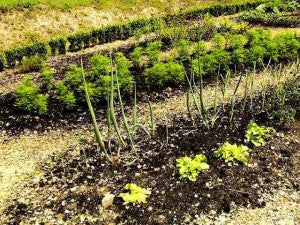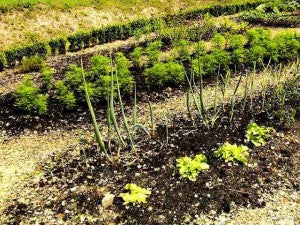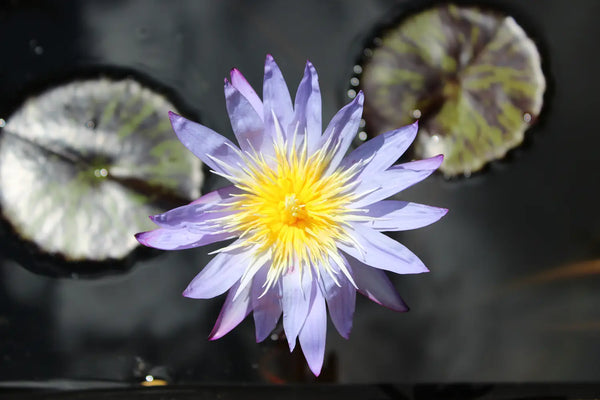Interested in saving seeds from your vegetable garden to share with others or use next year? It’s important to understand why some seeds are more worthy of saving than others. It’s as easy as understanding how your garden vegetables pollinate. In order to produce those veggies, pollination must occur. Vegetables are naturally pollinated (open-pollinated) in one of two ways: self-pollinated or cross-pollinated.
Self-Pollinated Plants
The pollination process in this type of plant is self contained within the same flower without the aid of insects or wind. Each flower contains both male and female flower parts. The seeds from these types of plants will produce future plants that are by and large a clone of their parent, or often it is stated, “It will produce true”. This will result in quality, good tasting crops. Vegetables that are self-pollinated include: tomatoes, beans, lettuce and peas.
Cross-Pollinated Plants
The pollination process in this type of plant is not self contained within the same flower. Instead, insects or the wind will transfer pollen between the male and female flowers on the plant. It’s possible to cross-pollinate other varieties or strains of neighboring plants. This won’t affect the vegetables you receive from the current season’s plants, but it could result in seeds that won’t be true in future generations of plants. For the average gardener, cross-pollinated plant seeds are not ideal to keep, unless each plant variety is isolated to control unwanted pollination. Some vegetables that are cross-pollinated include: squash, beets, spinach, pumpkins, corn, melons and most cucumbers.
Hybrid Plants
Hybrids are the intentional cross-pollination of plants to acquire each parent’s best traits. Some of the traits that are sought after are disease and pest resistance, fruit production, etc. It is not recommended to save these seeds as they generally won’t be true.



